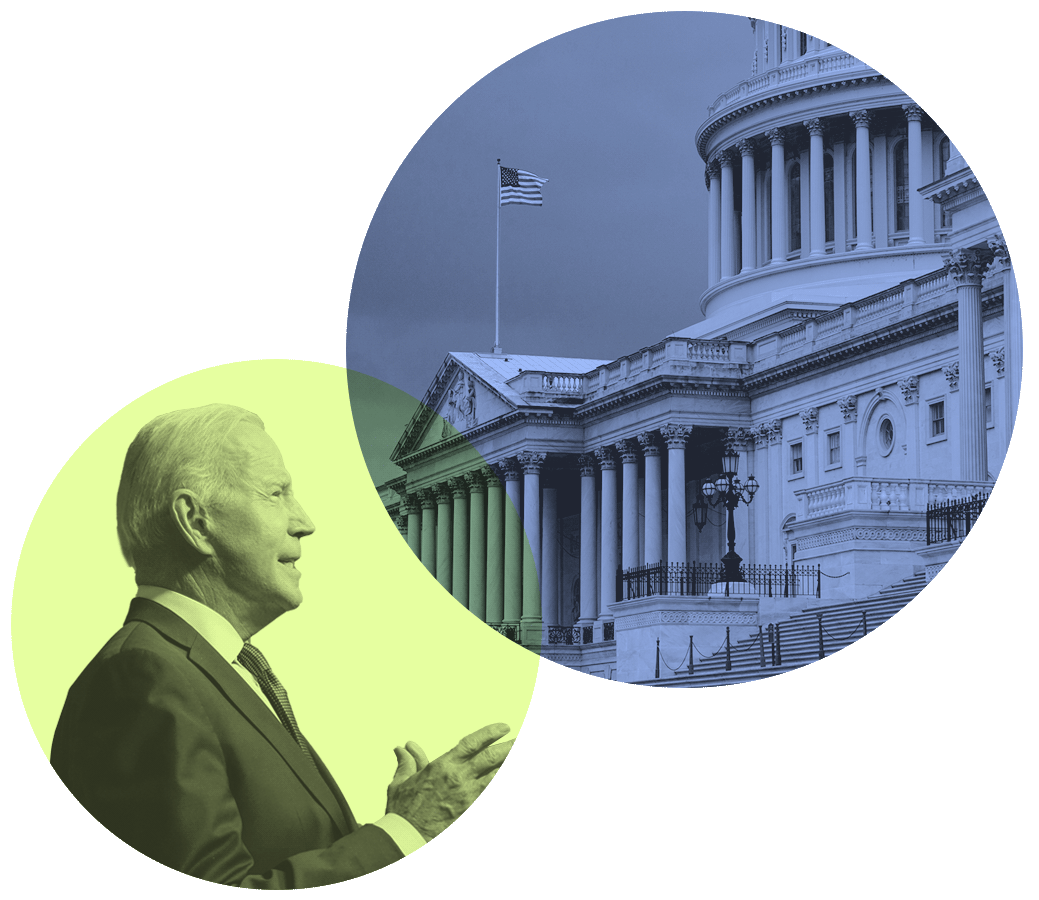A short-run weekly newsletter analyzing federal climate action during the first months of the Biden administration.
Hello friends! Nathanael Johnson here on day 87 of the Biden administration. This week the president laid out his initial budget proposal for next year.
The $1.5 trillion spending plan for 2022 that the Biden administration proffered last Friday would boost efforts to take on the country’s biggest problems. Included in it is $14 billion for reversing climate change, with allotments for environmental justice programs, basic science, and regulation of polluters. (Here’s a rundown.) That’s a bigger slice of the pie than some other priorities, like dealing with the immigration backlog or quelling the opioid epidemic. But it’s still a lot less money than Biden would like to spend on public housing ($69 billion, up 15 percent) or education ($109 billion, up 40 percent).
None of those big dollar figures matter unless Congress approves a big budget resolution to pay for all this stuff. And Republicans aren’t likely to agree to that. So Democrats will likely pass it later this year through what’s known as “reconciliation.”
If you’ve been reading this newsletter since day 45 of the administration, you’ll remember we explained how Democrats could pass bills through the arcane process of budget reconciliation without the help of Republicans. Suppose Democrats use reconciliation to get the full 2022 budget through Congress. They could staple other bills onto it, according to a recent ruling from the Senate parliamentarian. Climate hawks are hoping that this will help turn Biden’s $2 trillion infrastructure plan into reality. You know, the “Build Back Better” one.
That’s because the infrastructure bill is secretly (or not so secretly) really the climate bill. If it passes in something like its current form, the country would make a generational course change away from fossil fuels. That sounds like overstatement — and to be sure, no one can predict the future — but when the infrastructure proposal came out, it triggered a wave of excitement among climate wonks: They recognized it as a once-in-a-decade opportunity to get something done.
Right now, Biden is courting Republican support for the infrastructure package, but most news reports suggest that strategy is unlikely to bear fruit. Even if these cross-aisle negotiations fail to sway Republicans, perhaps giving bipartisanship a shot will be enough to sway Senator Joe Manchin, a Democrat from West Virginia. Manchin has said that he doesn’t want to pass the infrastructure bill through reconciliation, insisting that Democrats must compromise with Republicans.
That said, it’s easy to imagine a scenario in which Republicans reject all offers, and a fed up Manchin — interested in some goodies stuffed into the package just for his constituents — agrees to go the reconciliation route.
But Wait … There’s More.
- In the lead up to Biden’s international climate summit next week, John Kerry, the U.S. climate envoy, has been flying around the globe asking world leaders to bump up their emissions reduction goals But it’s not clear yet if the leaders of the most important countries — like China — will even attend the summit.
- What about the United State’s own emissions? Google, Walmart, McDonalds, and 300 other businesses wrote an open letter to Biden this week saying the country should commit to much steeper reductions in greenhouse gases. They are seeking a drop in emissions of 50 percent against 2005 levels by 2030.
- Interior Secretary Deb Haaland is walking a tightrope: She’s in charge of figuring out how to emerge on the other side of Biden’s moratorium on oil and gas exploration on public lands. The former representative from New Mexico faces an institutional culture designed to approve drilling, and allies, like her state’s Governor Michelle Lujan Grisham, whose budgets rely heavily on revenue from oil and gas leases.




